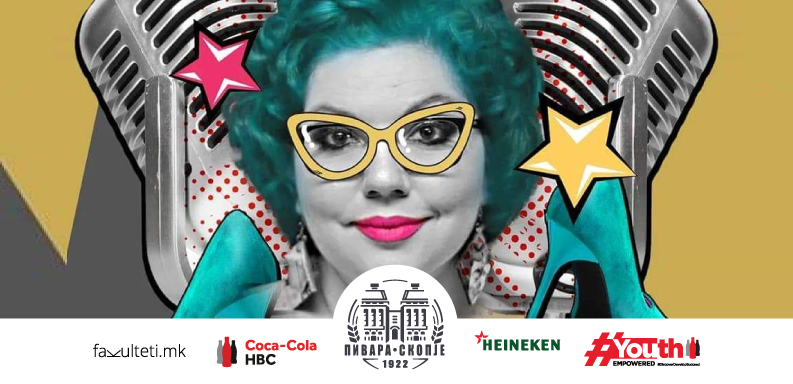
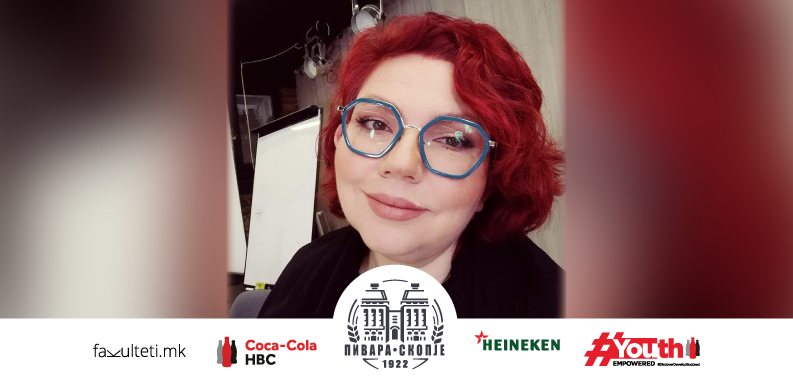
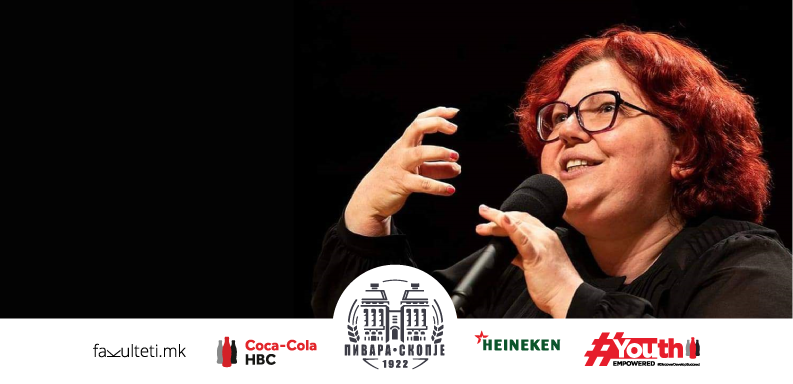
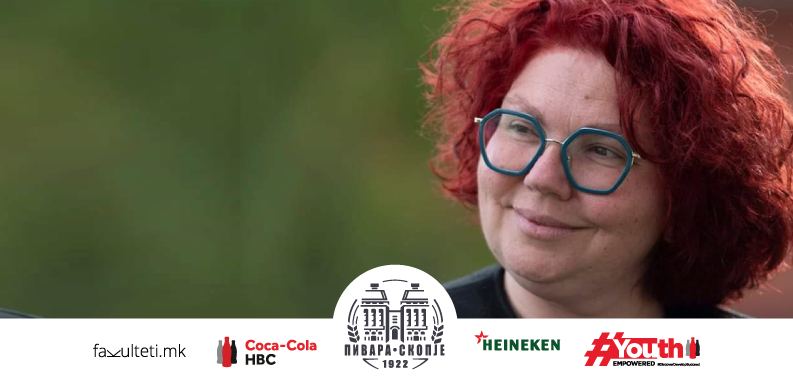
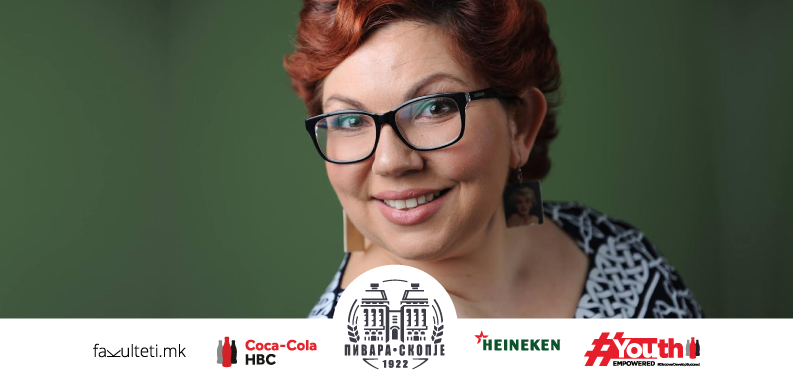
WHEN I WAS A STUDENT WITH THE DIRECTOR SOFIA RISTEVSKA-PETRUSHEVA: “THEY ALLOWED US TO TAKE THE ENTRANCE EXAM IN SOFIA IN OUR NATIVE MACEDONIAN LANGUAGE”
The fact that we were Macedonians was a privilege for us. We studied in artistic environments where people had no prejudices. The number of times someone said something to me because I am Macedonian can be counted on one hand. On the contrary, we were well accepted,” Ristevska-Petrusheva told us.
Twenty years after graduation, the famous Macedonian director Sofia Ristevska-Petrusheva says she keeps the memories of her student days. After being rejected in 1998 by the Faculty of Dramatic Arts in Skopje, her desire to study directing took her to Bulgaria. She graduated with an average of 9.18 from the department of theater directing at the National Academy for Theater and Film “Krsto Sarafov” in Sofia. She believes she could not have made a better choice, learning the theater craft in a country with a long theater tradition and in a city with over 10 theaters and opportunities to see plays every day. She later received a master’s degree in stage design from the University of Arts in Belgrade, Serbia.
I was rejected in Skopje, so I enrolled in studies in Bulgaria
In her two-decade career, she has directed 40 theater plays in Macedonia and throughout the Balkans. In some of them she is the author of the scenography too, she is a member of the jury on theater festivals, the founder of “Intimen Teatar” and the acting school “Fabrika za Mechti” , director at the Bitola National Theater, and she also works on video projections, stand-up comedies… But she is most recognizable for the women’s themes she puts on stage in the documentary theater.
“I applied to study directing in Skopje in 1998, right after finishing high school, but I was not accepted. Then, together with my colleague Dejan Projkovski, we went to the National Academy of Theater and Film in Sofia, where we were accepted. We had an entrance exam, but we did not take it together with Bulgarian students, only with other foreign students. They allowed us to take it in the Macedonian language, and the others were provided with translators. The fact that we were Macedonians was a privilege for us. We studied in artistic environments where people had no prejudices. The number of times someone said something to me because I am Macedonian can be counted on one hand. On the contrary, we were well accepted,” says Ristevska-Petrusheva.
We were taught to catch the subtext in plays
She graduated in the class of the famous Bulgarian director Krasimir Spasov, from whom she could learn to catch the subtext of texts suitable for theatrical performances.
“Our professor Krasimir Spasov, a wonderful director with great experience and understanding of the theater, let us develop our individualities and advocated for us to be free and develop our own aesthetics. He gave us the craft of directing. Spasov taught us to interpret the text, understand the context, and catch the subtext. The rector, Professor Rukov, who taught us stage movements at that time, said: ‘We, the Academy, and above us is God only.’ We, as directors, also had an acting exam to see if we could act, sing, and dance, to be equivalent to the actors,” says the director.
The most stressful were the directing exams, which could cause students to fail a year
Studying directing required great dedication, hard work, and perseverance, as Sofia says. She and Projkovski were only 18 years old when they enrolled, while their colleagues were older. In Bulgaria, it was customary for a student to have a degree in something else before studying directing. The most stressful were the directing exams, for which there was no resit; failing meant losing the year, i.e. the class. Her happiest moment came in the fourth year when a professor known for giving decimal grades awarded her a six (equivalent to a 10 for us) for her play “The Lesson” by Eugène Ionesco. She graduated with the play “The Balkans Are Not Dead” by Dejan Dukovski, performed at the Municipal Theater “Ljubomir Kabakchiev” in Kazanlak, Bulgaria. The play participated in the Ohrid Summer and the Youth Open Theater in 2004.
“For a student to be successful, it is important to be persistent. And to always want to learn a little more. To have love for what they study. And not to give up because there are many obstacles in during the studies. Don’t get demotivated,” says Sofia.
With a student ID card, you can watch shows in all of Sofia for free
She experienced the Bulgarian metropolis of Sofia as a city with numerous theatrical possibilities. There were more than 10 theaters on the main theater street, “Gjorgi Rakovski,” and the money allocated by the state for making plays was much larger than in our country. Students could watch any show for free with their student IDs. They collaborated with fellow directors and acting students, and in addition to studying, they had a fun life with lots of parties and socializing. The contacts she built then remain to this day.
“I have never left Sofia. I have a small apartment there and I go back regularly. This June, I also start rehearsals for a play that will be a co-production between “Intimen Teatar” and the Independent Cultural Organization “36 Monkeys”. I will be acting from the Macedonian side, alongside Zdrava Kamenova from Bulgaria, and the director is Gjergana Dimitrova, a colleague from my student days in Bulgaria. It’s a co-production titled “Ajvar ili Lutenka,” aiming to showcase the similarities and differences in the languages of the two countries. Another project is on the horizon between the Bitola National Theater and the “Sava Ognjanov” Drama Theater from Ruse, titled ‘The Cities We Love,’” says Ristevska-Petrusheva.
Macedonian female directors are marginalized, without enough space to work
In her opinion, the position of female directors in European countries is more favorable than in Macedonia, where she believes that they are marginalized, without getting enough space to direct.
“I want to tell women’s stories, to show how society puts pressure on a woman, imposes norms on her, and how she rebels against them. There have always been female directors in Bulgaria; they have the right to work, and theaters are in solidarity with them, which is not the case in our country. Our theaters are not supportive of women directors; there is little interest in women directing, and they are often marginalized. My experience with Macedonian theaters is not brilliant at all, but rather painful, especially with executives who hire us to come in and do shows. Female directors in Macedonia are often sidelined; this is my perspective, not necessarily shared by all my colleagues. Women have little place in Macedonian theater. We must fight for any space available,” says Sofia.
She is also actively involved in documentary theater. There were plays in which women suffering from breast cancer participated and shared their stories. Currently, she is dedicated to theater with elderly people. In the Retirement Home “Sofia” in Bitola, there are approximately 50 residents with whom they create theatrical performances. They perform dramatic miniatures through which their life stories are told. The goal is to use documentary theater as a tool to improve the lives of the elderly in the country.
Zhaneta Zdravkovska









